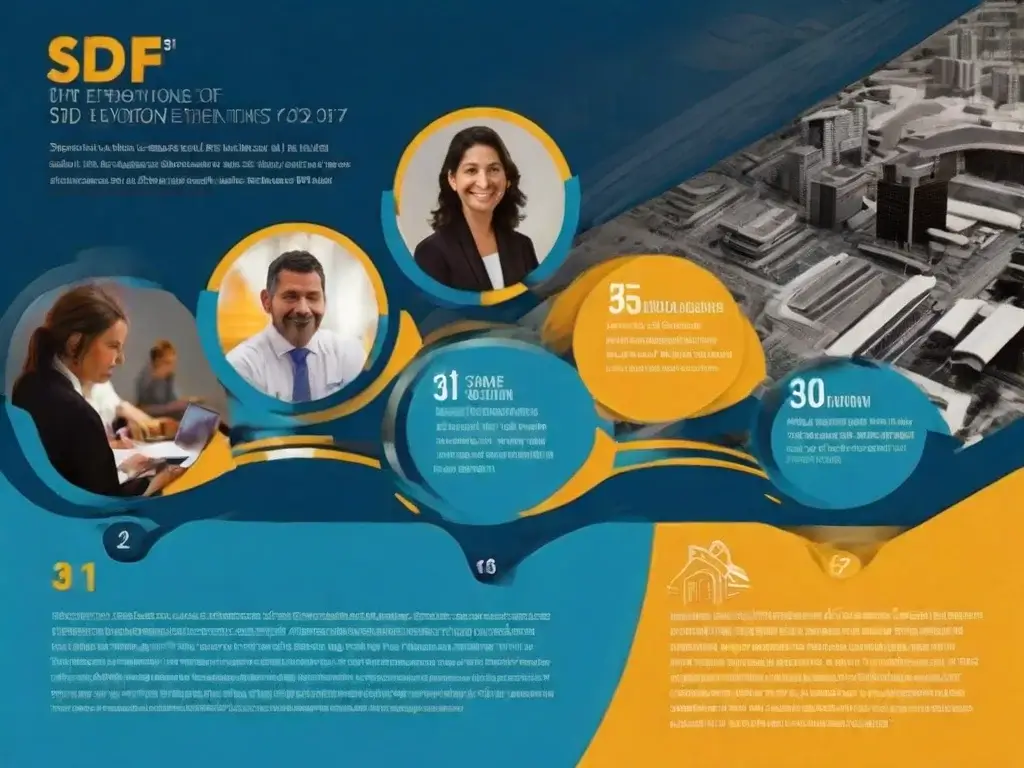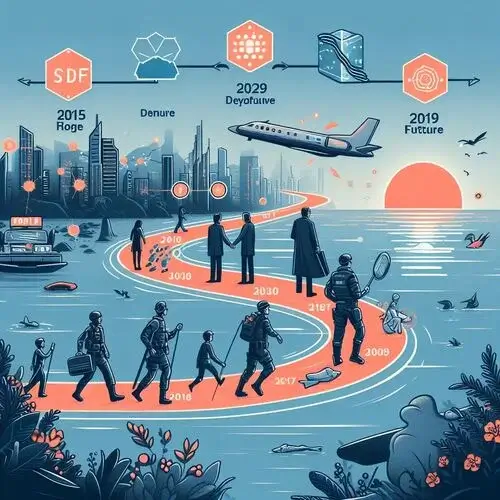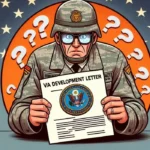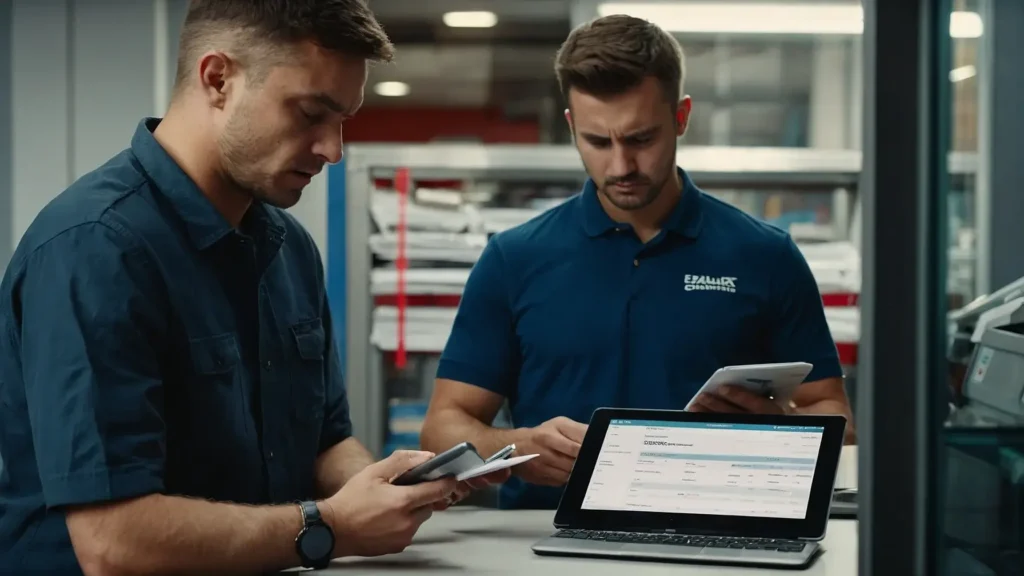Remember how weird it was when you finished and were full of skills but didn’t know how to start using them? Yes, I agree. The Skills Development Facilitator (SDF) is South Africa’s secret tool, which is good news. These experts in developing the workforce help companies and people get the skills they need to have successful jobs in the future. What is skills development facilitator and what does an SDF really do? Get ready, people who like to learn, because we’re about to dive deep into this interesting topic.
Want to help with the important task of improving the skills of South Africa’s workers? Read “How to Join Skills Development Facilitator and What Are the Requirements?” Read the “How to Train for It” related piece to learn the steps and find the tools you need to start your own SDF journey.
Benefits of Skills Development Facilitator
Before going to what is skills development facilitator let’s learn some history. The Skills Development Act of 1998 understood how important it was for the economy to have skilled workers. Since then, the SDF has been very important in improving skills and changing the South African environment. These days, they help with:
- Getting people the right skills makes them more employable and helps the economy grow, which lowers unemployment.
- Increased productivity: Companies with skilled workers are more competitive and work more efficiently.
- Transformation of the Workforce: SDFs promote inclusion by making sure that people from all walks of life can get chances to improve their skills.
Skills Development Facilitator Registration Criteria
Know that you know what is skills development facilitator. Next is how to become an SDF. As SDF, you can help people in South Africa improve their skills. This is a fun and important job. But how can you join this significant group and make a difference?
- Education Requirments: The National Qualifications Framework (NQF) Level 5 title you have to have must be valid and in the right field, such as Human Resources, Education, or Training.
- Work Experience: You should have at least two years of experience in a similar field, preferably in a job that allows you to learn and grow.
- Sign up: To finish the required training program, sign up with an approved SDF training company.

Skills Development Facilitator Training Path and Tips
- Tech and Vocational Education and Training (TVET) colleges offer NQF Level 5 SDF as a public provider.
- Private Providers: There are a lot of approved private schools that offer SDF training classes.
- Programs Made Just for SETAs: Some Sector Education and Training Authorities (SETAs) offer SDF training that is specific to their fields.
Course Detail and Cost
- The length of a course varies from company to company and type of program to type. Most training programs last between 6 and 12 months.
- Delivery Methods: You can learn full-time, part-time, online, or in a mix of the two.
- What You’ll Learn: You will learn how to find skill gaps, make training plans, manage students, get money, and write reports.
- Cost: Prices change based on the service and type of program. You might want to apply for SETA scholarships or grants to get money.
Resources for Further Information about Skills Development Facilitator
- Department of Higher Education and Training (DHET): https://www.dhet.gov.za/
- South African Qualifications Authority (SAQA): https://www.saqa.org.za/
- Sector Education and Training Authorities (SETAs): https://nationalgovernment.co.za/units/type/8/seta
Additional Considerations After Understanding What is Skills Development Facilitator
- Do A Lot of Research: You can find the best program for your wants and income by comparing training companies, course material, and prices.
- Get the Documents You Need: Get your credentials, proof of work experience, and any other important papers ready for registering.
- Meet People and Ask for Help: Get in touch with SDFs, training providers, and pros in your field who have the experience to get advice and help.
- Stay Up-to-date: The field of skill development is dynamic, therefore if you want to be relevant, you have to continually learn new things.
- Registration with the South African Qualifications Authority (SAQA) is a requirement for professional recognition after training is complete.
- Keeping your skills and license up-to-date is easy when you participate in activities that encourage continuous professional development (CPD).
- Specialization: Look for ways to become an expert in certain fields or ways of teaching.

Skills Development Facilitator Duties and Responsibilities
- Do a Skills Gap Analysis: SDFs check whether employees’ skill sets are in line with business goals and weaknesses by evaluating their knowledge and skills.
- Make plans for training: SDFs create and carry out specific training programs to meet stated needs by using what they learn from the skills gap analysis.
- Where to Get Money: Part of the SDF’s job is to find its way through the confusing web of government funds, business budgets, and other funding options.
- Take care of learner journeys: SDFs help learners on their way to growth by figuring out what they need, giving them training, and being there for them afterward.
- Keep reports and records: Keeping careful records and speaking to the right people are important parts of the SDF’s job.
- Strategic Partner: SDFs help businesses by advising them on how to make skill-building programs fit in with their overall business plan.
- Change Agent: The SDF is in charge of bringing about and overseeing changes in organizations so that they adopt a mindset of ongoing learning.
- Collaborator: For skill development to go well, it’s important to build ties with companies, training providers, government bodies, and trainees.
- Advocate: SDFs fight for the idea that skill development is important for more than just companies. It’s critical for national prosperity and individual development as well.
Specific Duties
The exact skills development facilitator role of an SDF may change based on their level of experience and knowledge, as well as the size and type of company they work for. However, the above-mentioned core tasks stay the same, which shows how varied and important the SDF job is.
Check: How to Analyze Multifamily Investment Opportunities in 2024
FAQs Related to What is Skills Development Facilitator
What does an SDF really do?
The SDF does a lot of different things. They look for skills gaps, make training plans, find funds, handle the learning trips of students, keep track of progress, make records, report to officials, and promote the value of skill development. They basically fill in the gaps between what employers want and what individuals want by making it easier to learn the right skills.
What are the different ways I can get training for SDF?
There are training classes for the SDF at public TVET schools, independent companies, and even some SETAs. You can choose between full-time, part-time, internet learning, and a mix of these options. Courses last from 6 to 12 months.
What are the most important skills and traits an SDF must have?
It is very important to have good planning, problem-solving, communication, and relationship skills. A desire to improve skills, the ability to change, and a determination to keep learning are also necessary.
For SDFs, what are the job prospects?
There are job openings for skilled SDFs in a number of businesses, training groups, and government departments. Specialization in certain fields, teaching methods, or leading jobs are all possible career routes.
What do SDFs have to deal with most often?
Some of the most common problems are getting funds, understanding complicated rules, keeping up with how skills change, and making sure that training programs work.
What’s the difference between a teacher and an SDF?
Trainers are in charge of delivering specific training lessons, but SDFs are in charge of planning, finding resources, handling pupil trips, and making sure the program is successful.

Final Words on What is Skills Development Facilitator
If you have any more doubts or questions about what is skills development facilitator you can visit the websites mentioned above. Being in the SDF is a tough but fulfilling job. They are the ones who build trained workers and decide how the economy of South Africa will grow in the future. We can all help make the future better and more powerful by knowing our part and accepting how things are changing.







